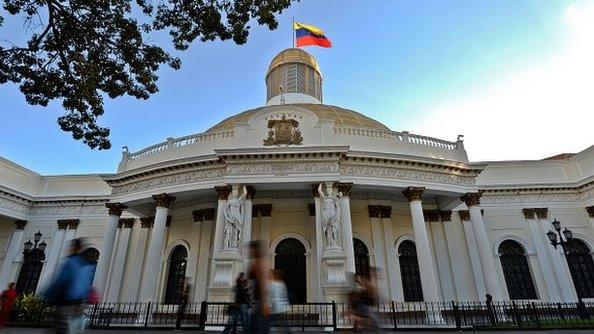Venezuela students protest against Supreme Court ruling
- Published
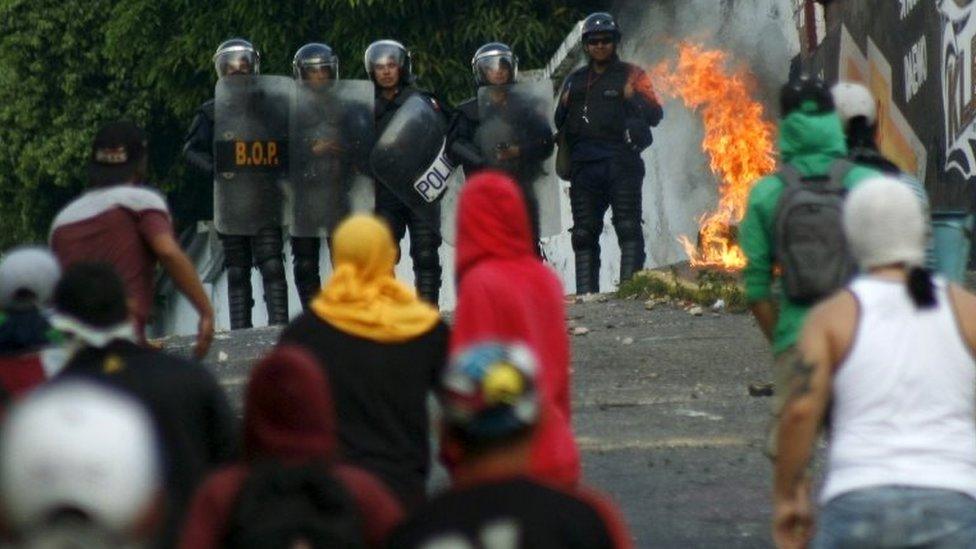
Police and students clashed in San Cristobal on Wednesday
Venezuelan students clashed with police in the western city of San Cristobal on Wednesday.
The students were protesting against a ruling by the Supreme Court on Tuesday.
The court curtailed the power of the opposition-controlled National Assembly to review government appointments of Supreme Court justices.
The clashes come at a time of rising tension between the opposition and the socialist government of President Nicolas Maduro.
Cradle of protest
The protesters set up roadblocks and threw stones at police, reporters at the scene said.
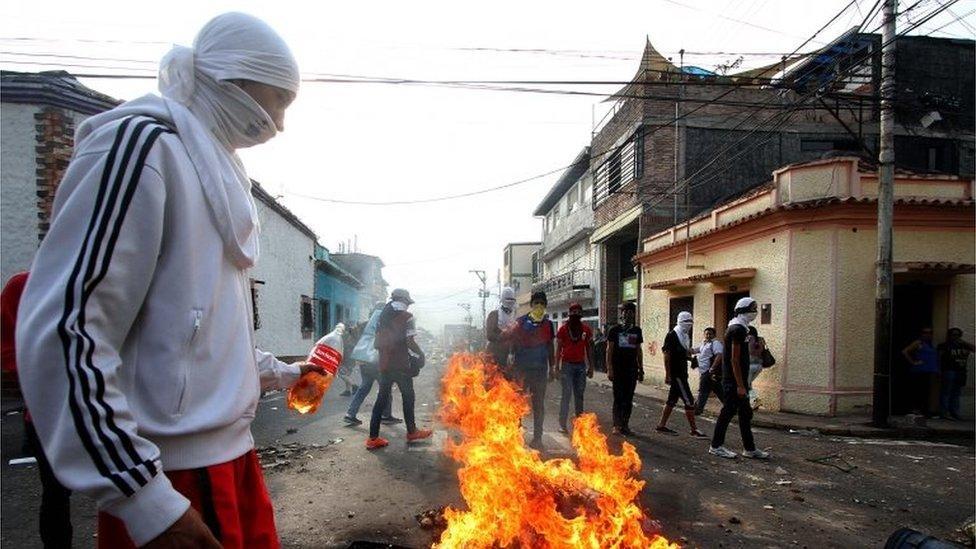
San Cristobal was at the centre of anti-government protests in 2014
San Cristobal was where a wave of anti-governments protests started in 2014.
Forty-three people from both sides of the political divide were killed during the ensuing months in some of Venezuela's main cities.
Jose Vielma Mora, the governor of Tachira state, where San Cristobal is located, said that the protesters "use violence to support a National Assembly that wants to violate the rule of law".
The National Assembly was due to debate the government's nomination of 13 Supreme Court justices and 21 alternates on Tuesday.
Following legislative elections on 7 December, the National Assembly is controlled by lawmakers opposed to the socialist government for the first time in 17 years.
But before the new lawmakers were sworn in on 5 January, the outgoing lawmakers rushed through the nominations for the country's top court in specially convened sessions.
The opposition says the government stacked the court with judges friendly to the administration in order to curb the power of the National Assembly.
They accuse the court of overwhelmingly ruling in favour of the socialist government in the 17 years since it was first elected.
Stand-off
On Tuesday, the Supreme Court said the National Assembly's power was limited to overseeing the executive, not the judiciary.
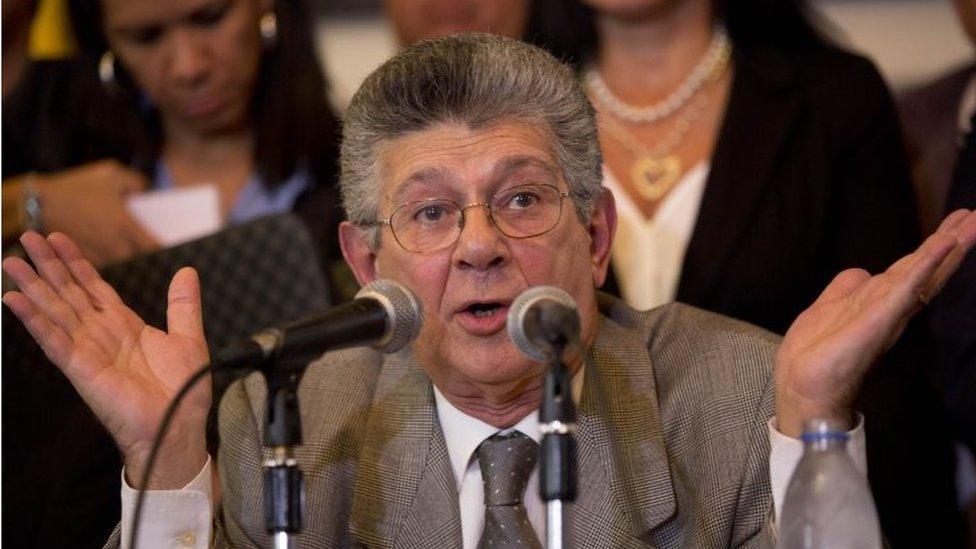
The speaker of the National Assembly, Henry Ramos Allup, has expressed his frustration with the court's rulings
It said the National Assembly would therefore be overstepping its authority if it tried to remove Supreme Court justices or even review their appointments.
It is the latest in a series of stand-offs between the Supreme Court and the National Assembly since January, with the court ruling against the opposition in every instance.
Relations between the government and the opposition have been tense for years.
A number of opposition leaders are in jail on what they say are trumped-up charges while the government argues that they are dangerous individuals who incited deadly violence.
Opposition lawmakers say they plan to remove President Maduro from power by means of a recall referendum later this year.
Under the Venezuelan constitution such a referendum can be called once the president is half way into his term in office, which in Mr Maduro's case will be on 19 April.
An economic crisis brought about by low oil prices has triggered shortages of basic goods and caused widespread discontent with the government of Mr Maduro.
The president says the shortages are the result of an "economic war" waged against Venezuela by "imperialist forces".
- Published12 February 2016
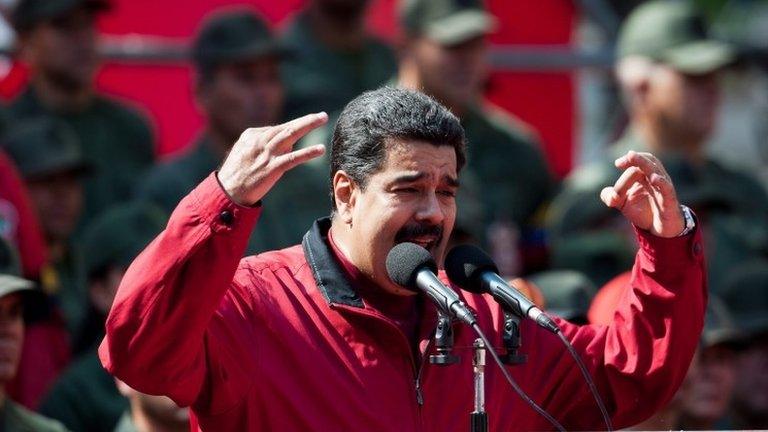
- Published15 January 2016
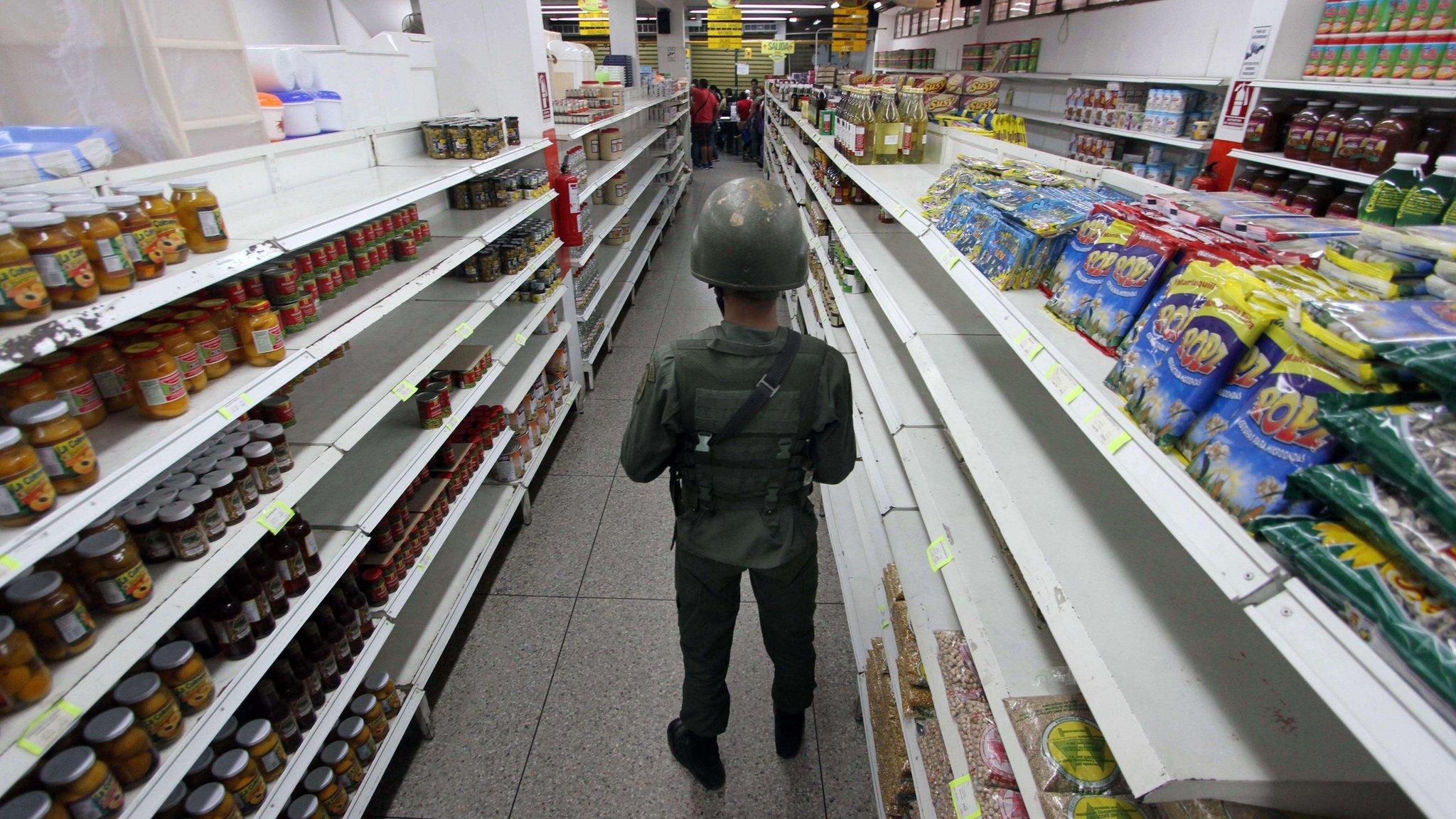
- Published7 January 2016
